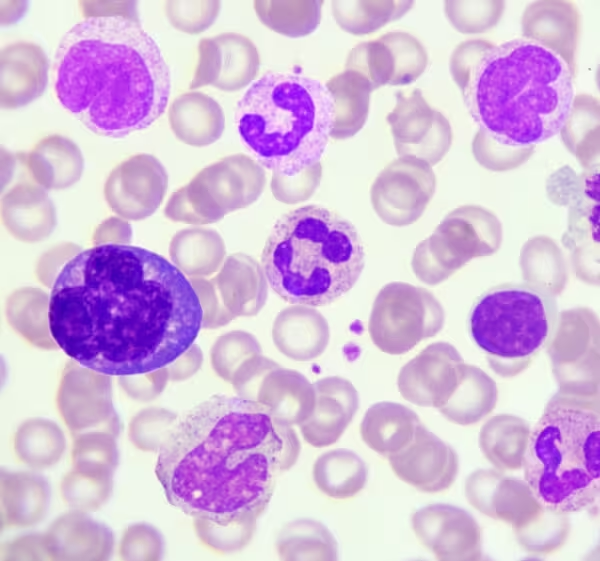4 Minutes
The Hidden Dangers of Measles: More Than Just a Viral Infection
Measles, once considered a routine childhood illness, remains a gravely underestimated threat to global health. While most people recognize the classic symptoms—fever, rash, and respiratory discomfort—the true dangers run far deeper. Measles infection can result in severe complications such as blindness, pneumonia, and deadly diarrhoeal disease, especially in young children. Tragically, prior to the widespread adoption of vaccination, measles was responsible for an estimated 2.6 million deaths per year during the 1960s.
The Power and Success of Measles Vaccination
The introduction of the measles vaccine has been a turning point in public health history. From 2000 to 2023, vaccination campaigns are estimated to have saved over 60 million lives worldwide. The measles vaccine, which utilizes a live attenuated (weakened) virus, not only prevents the spread of measles but also contributes to long-lasting immunity. Two doses of the vaccine provide more than 90% long-term protection, dramatically reducing the incidence of outbreaks in vaccinated populations.
Despite these successes, a worrying trend has emerged: measles cases are once again rising sharply in the UK and across the globe. Several factors are contributing to this resurgence, including vaccine hesitancy, disruptions in routine immunization programs, and gaps in healthcare access—leaving millions of children susceptible to infection.

Measles and "Immune Amnesia": How the Virus Erases Immune Memory
While the immediate complications of measles are serious, scientific research now reveals a further, often overlooked consequence. Measles can trigger what experts call "immune amnesia"—the phenomenon where infection erases parts of the body’s established immune memory. The immune system relies on specialized cells to recognize and fight pathogens it has encountered before. Some of these cells make targeted antibodies, while others destroy infected cells directly. Through immune memory, the body mounts faster and more effective responses to repeated threats.
Measles infection, however, profoundly disrupts this process. Studies have shown that unvaccinated children who contract measles can lose between 11% and 73% of their antibodies to other diseases, rendering them vulnerable to infections they were previously immune to. By depleting the diversity and number of memory immune cells, measles not only causes acute illness but also exposes children to a renewed risk of various infectious diseases. In contrast, vaccinated children retain their immune protections, underscoring the critical value of measles immunization.
Beyond Measles: Unexpected Benefits of the Vaccine
Emerging evidence suggests the measles vaccine offers health benefits that extend well beyond preventing measles itself. One theory, known as the "non-specific effect" of vaccines, proposes that immunization may broadly strengthen the immune system, equipping it to fight a diverse array of pathogens. Recent research indicates that certain immune cells respond more robustly following measles vaccination, providing a wider shield against unrelated infections. This effect is not unique to measles; other live attenuated vaccines, such as the BCG vaccine against tuberculosis, have demonstrated similar broad immune-boosting properties.
Some scientists believe these non-specific effects might explain why children who receive the measles vaccine experience overall better health outcomes. Whether the added protection derives primarily from preventing immune amnesia, from generalized immune training, or from a combination of both, these findings highlight the far-reaching impact of the measles vaccine on global child health.

The Public Health Challenge: Combating Misinformation and Protecting Communities
As vaccination drives have succeeded in reducing measles to a rarity in many countries, collective memory of the disease’s severity has faded. This amnesia extends to an underestimation of measles' extraordinary contagiousness—one infected individual can transmit the virus to up to 90% of unvaccinated people nearby. Consequently, communities may become complacent, and in some instances are swayed by misinformation and anti-vaccine narratives, both of which can rapidly undermine public health progress.
Experts emphasize that maintaining robust vaccination rates is essential not only for preventing measles outbreaks but also for preserving herd immunity and protecting against a resurgence of other infectious diseases. Regions such as West Africa, where measles and other diseases still circulate, continue to experience the devastating consequences of gaps in immunization coverage.
Conclusion
The re-emergence of measles in parts of the world underscores the interconnectedness of immunization, community health, and disease prevention. Scientific advances reveal that the measles vaccine does more than prevent a single virus—it guards the immune memory and, possibly, strengthens resistance against a wide range of infections. As health experts and organizations urge, the imperative is clear: safeguarding children through measles vaccination is a critical investment in both individual and public health, shielding generations not only from measles itself but from many other infectious threats.
Source: theconversation



Comments